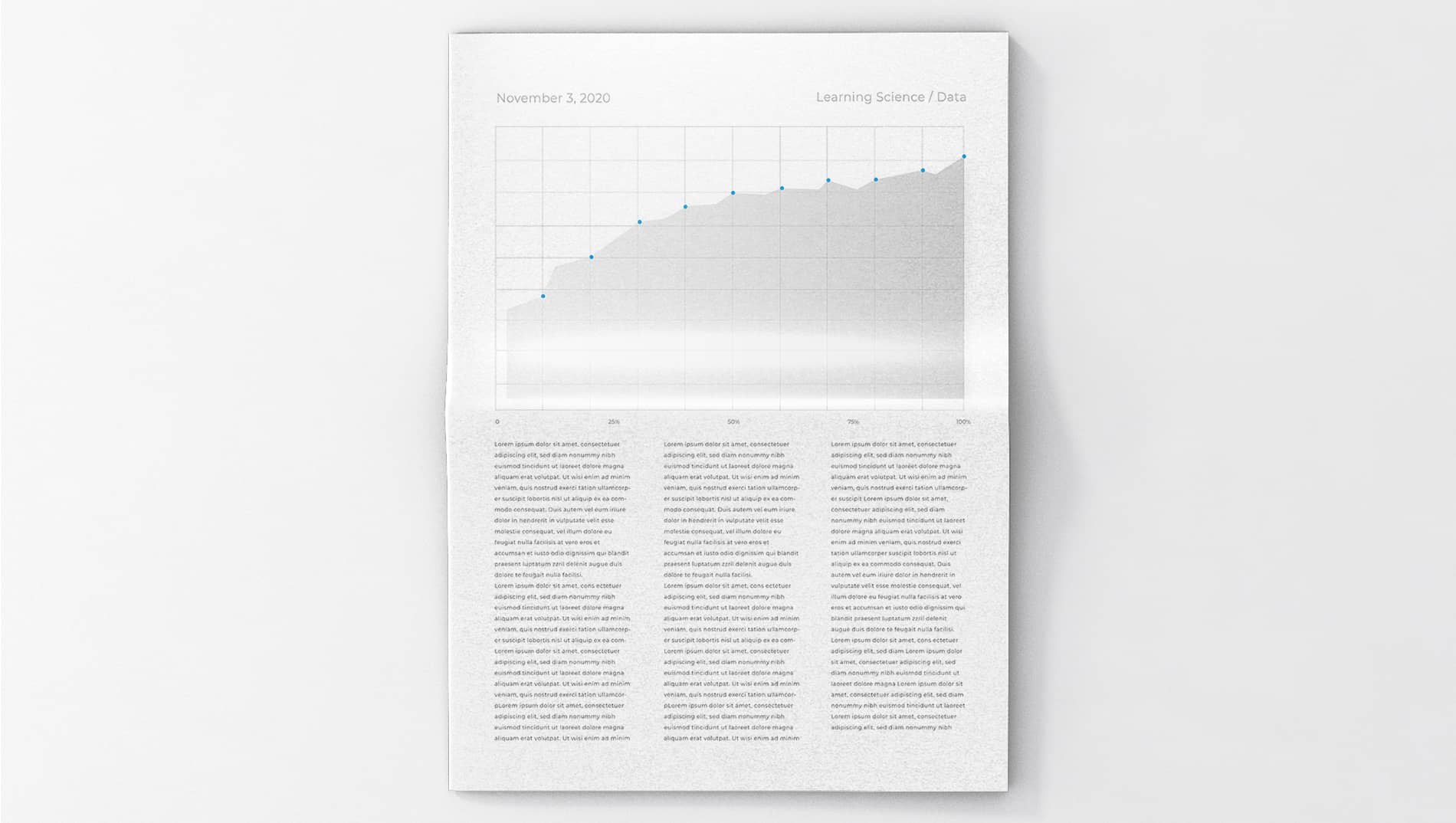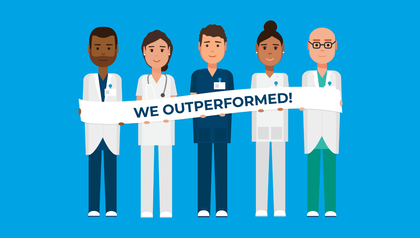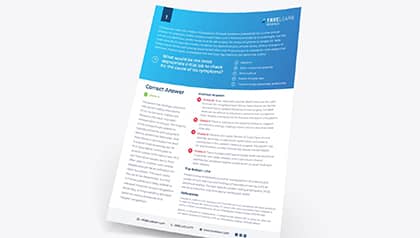ABS Qualifying Exam: Everything You Need to Know for 2026
The ABS Qualifying Exam (QE), also referred to as the written boards or General Surgery Qualifying Exam (GSQE), is a multiple-choice exam sponsored by the American Board of Surgery. The exam is offered every July to board-eligible general surgery residents.
Who is Eligible to Take the ABS Qualifying Exam?
Board eligibility is extensively described on the ABS website. Requirements include, but are not limited to, handling a minimum of 850 operative cases, including at least 25 teaching assistant (TA) cases and 40 surgical critical care cases.
What is the Purpose of the ABS Qualifying Exam?
Successfully passing the written QE allows an ABS candidate to register for the oral Certifying Exam (CE). Passing both the written QE and the oral CE is the final step to becoming board-certified in general surgery.
What Is the Pass Rate for the ABS Qualifying Exam?
The pass rate for the QE has been over 90% for the past few years.
Please see the table below for pass rates over the last five years. This data was obtained from the ABS website. The pass rate is based on percentile rank, which changes annually.
| Year | Pass Rate on First Attempt |
| 2025 | 91% |
| 2024 | 95% |
| 2023 | 95% |
| 2022 | 95% |
| 2021 | 95% |
| 2020 | 97% |
| 2019 | 96% |
| 2018 | 97% |
| 2017 | 95% |
| 2016 | 87% |
| 2015 | 87% |
ABS Qualifying Exam Content and Structure
The QE is an eight-hour computerized (written) exam. Unlike the ABSITE, which is taken at residents’ home institutions, the QE is administered at authorized testing centers in the United States. It is divided into four sections, each with a time limit of an hour and 55 minutes and a scheduled break afterwards. Sections cannot be revisited once they are submitted or the allotted time has passed.
Like the ABSITE, the QE has an official content outline that determines the weight of each topic. For example, Patient Care makes up approximately 80% of the exam, while 12% of Patient Care questions fall under the subtopic of Abdomen. The questions are similar in structure and topic distribution to the questions found on the ABSITE. The ABS recommends referring to the SCORE Curriculum Outline for General Surgery for further details on what is covered in each category.
It is important to note that QE questions tend to be more difficult than those on the ABSITE, requiring greater application of knowledge. The SCORE Curriculum categorizes topics as either Core or Advanced. Expect to be tested on more of the Advanced topics during the QE. Ultimately, the QE tests the breadth of knowledge accumulated over years of residency. It is challenging to “cram” for it, but answering as many questions as possible will refresh your memory and provide the tools you need to pass.
How Many Questions Are on the Exam?
The exam includes approximately 300 multiple-choice questions divided into four sections. There are approximately 75 questions per section.
How Long Do I Need to Study for the ABS Qualifying Exam?
Residents who take the QE have previously taken the ABSITE or another in-training exam in their preceding years of surgical training. At a minimum, trainees will have taken five ABSITE exams or other in-training exams prior to taking the QE.
The QE is administered each July, typically after residency and before the start of a fellowship or new position. Regardless of fellowship start date, most candidates benefit from six months to a year of dedicated preparation. However, timing can influence study logistics: fellowships beginning July 1 may require balancing final exam review with orientation, whereas those starting August 1 offer a brief additional window for focused study.
The key to effective preparation is time management and goal-oriented studying. The time allotted for preparation will depend on individual preference.
How to Prepare for the ABS Qualifying Exam
TThe best way to prepare, especially if you’ve achieved > 30th percentile (considered an informal benchmark) on the ABSITE exams, is to continue with the effective study habits that have served you well so far. This likely involved utilizing question banks such as TrueLearn, SESAP, and SCORE. Some residents study for the ABSITE from November to February and then pick back up studying for the QE in May-June.
For the vast majority of trainees, the timeline is as follows:
- Complete the final ABSITE in January or February of chief year (or final year of residency).
- Graduate from surgical residency, typically in June.
- Take the QE in July.
- Start fellowship on August 1.
After completing their final ABSITE and graduating, some trainees then immediately start studying for the QE. However, be aware that this is a busy transitional time.
Top 3 Things You Need to Know If You’re Taking the ABS Qualifying Exam
- Use two resources to study. Continue using the combination of resources you’ve found to be helpful when in training. The highest yield will come from answering questions: thus, completing two question banks is a good strategy. TrueLearn has a comprehensive general surgery board review with practice questions dedicated to the QE. TrueLearn’s SmartBank, in conjunction with SESAP, which was created by the ABS, has guaranteed success for many test-takers. Try to answer as many questions as possible!
- Use the ABSITE taken during your final year as a way to prepare for the QE. The easiest way to study for the QE is to study well for the ABSITE. Performance on the ABSITE is a good predictor of performance on the QE. Starting preparation two months prior to the QE, especially if fellowship begins August 1, will provide ample time to do well on the test.
- Time management is key. In addition to ensuring proper ABSITE preparation in your final year, start studying for the QE immediately after graduating from residency, at a minimum. During this busy transitional time, you may have to juggle relocation, fellowship orientation, and the desire to go on a well-earned vacation. Dedicate adequate time for preparation and complete as many questions as possible.
Additional FAQs About the ABS Qualifying Exam
How many times should I go through a question bank to be ready?
Start with one full pass to cover the breadth of the blueprint, then switch to targeted review. Revisit any missed or flagged questions and any weak categories until you can explain why each answer choice is right or wrong and your scores stabilize across those topics. Two or three focused mini-cycles on weak areas usually outperform another full pass. If you’re using the TrueLearn ABS QE SmartBank, use the missed/marked filters and custom quizzes for spaced repetition; once you’re consistently hitting your target accuracy across categories, you should be ready.
Can you pass the ABS QE with a low ABSITE score?
Yes, it’s possible. While a strong ABSITE score often correlates with better preparation, the ABS QE tests different skills and covers a broader range of topics. Many surgeons with modest ABSITE scores have passed the QE by creating a focused study plan, revisiting weak areas, and practicing with high-quality question banks. The key is identifying gaps in knowledge early and consistently reviewing core surgical concepts until you’re confident in your understanding.
How is the ABS QE scored?
The ABS QE is scored on a scale from 100 to 900, with 400 set as the passing score every year. Your raw score is converted to this scaled score to account for small differences in difficulty from one exam to the next. For example, a 500 means you scored one standard deviation above the passing mark. This system makes it easier to compare your performance across exams and ensures the passing standard is consistent.
Can I take the QE if I’m starting fellowship right away?
Yes, many residents take the QE in July while transitioning into fellowship. This can mean balancing orientation with studying, so planning your prep schedule in advance is key.
Written By: Nicole Ilonzo, MD, is the Associate Program Director for the general surgery residency and Assistant Professor of Surgery at Weill Cornell Medicine, and an attending vascular surgeon at New York Presbyterian-Brooklyn Methodist Hospital. She completed her general surgery residency at Mount Sinai St. Luke’s-West and her vascular surgery fellowship at Mount Sinai Hospital.
Updated by: TrueLearn team August 20, 2025.
Learn More About TrueLearn’s ABS Qualifying SmartBank!
Learn MoreReferences
- Ray JJ, Sznol JA, Teisch LF, et al. Association Between American Board of Surgery In-Training Examination Scores and Resident Performance. JAMA Surg. 2016;151(1):26-31.
- Hancock KJ, Klimberg VS, Williams TP, Radhakrishnan RS, Tyler DS, Perez A. General Surgery Resident Use of Electronic Resources: 15 Minutes a Day. J Am Coll Surg. 2020;230(4):442-448.


